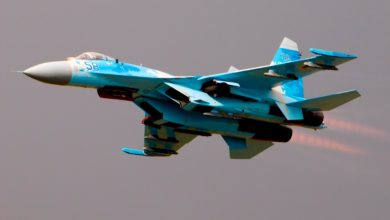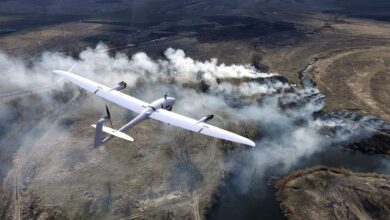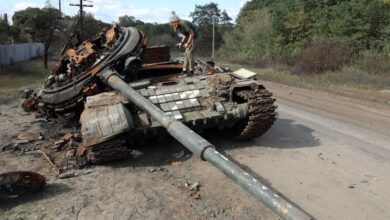NATO foreign ministers meeting in Oslo Thursday debated providing security guarantees to Ukraine after its war with Russia ends, as the alliance looks to bridge divisions over Kyiv’s push to join the bloc.
Russia’s invasion of Ukraine in February last year has galvanised the Western military alliance set up almost 75 years ago to face off against the Soviet Union.
But with just over five weeks to a summit of NATO leaders in Lithuania’s capital Vilnius there are splits on key issues.
Chief among them is Kyiv’s push to join NATO, an organization that requires consensus to make decisions.
Ukraine’s President Volodymyr Zelensky, backed by NATO countries in eastern Europe, has called for a “clear message” at the July summit that Kyiv will join once the war with Russia ends.
NATO chief Jens Stoltenberg said all members agree to stick by a 2008 pledge that Ukraine will one day become a member.
But diplomats from NATO countries say its dominant military power, the United States, is reluctant to go any further than that vague vow.
Joining NATO would mean Ukraine would be covered by the alliance’s Article 5 collective defence clause that obliges all members to help defend it if attacked.
An option being weighed is major powers offering Ukraine bilateral security assurances in the years before it becomes a full NATO member.
“We don’t know when the war ends, but we must ensure that when it does we have credible arrangements in place to guarantee Ukraine’s security in the future,” Stoltenberg said after the Oslo talks.
“The details how this will be done, what kind of mechanisms, that remains to be decided.”
French President Emmanuel Macron on Wednesday backed “tangible and credible security guarantees” for Ukraine.
Diplomats say proposals being mooted range from guaranteeing weapons supplies to allow Ukraine to protect itself to providing commitments to help it fight.
US Secretary of State Antony Blinken said Washington was focused on building up Kyiv’s capacities “so that if and when the current aggression settles Ukraine has the full capacity to deter, and if necessary, defend against future aggression.”
“We of course have been engaged in those discussions directly with Ukraine, other countries have as well,” he said.
Stoltenberg is pushing for a decade-long program worth 500 million euros ($530 million) per year to help Ukraine’s military switch to Western standards.
Blinken said NATO’s Vilnius summit would look to strengthen the organisation’s political ties with Ukraine and make its forces more “interoperable” with the allies.
New NATO Head?
Another hot potato for the Vilnius gathering is a new pledge to boost NATO’s current target for each member to spend at least two percent of gross domestic product on defense.
Only seven members hit that figure last year, and Stoltenberg said the two-percent figure would now become a “minimum.”
But Eastern European members, which have already boosted defense spending beyond that, are disappointed by the lack of ambition shown by some allies.
One issue also being discussed by ministers on the sidelines of the meeting is finding a successor to Stoltenberg as NATO secretary general.
The former Norwegian premier has held the post since 2014. Last year, following Russia’s invasion of Ukraine, his tenure was extended to September this year.
Danish Prime Minister Mette Frederiksen has emerged as a possible frontrunner and is heading to Washington next week for a meeting with US President Joe Biden.
She has bolstered her case by promising to triple Denmark’s defense budget over the next decade.
But newer NATO members from the eastern part of Europe complain it is time one of their politicians gets the job, arguing it should not be dominated by just one region.
Other names being mentioned are Estonian Prime Minister Kaja Kallas, Romania’s President Klaus Iohannis, and British Defense Secretary Ben Wallace.
Diplomats say that if no clear choice emerges then Stoltenberg — who says he won’t put himself forward — may be asked to stay on still longer, into next year.












